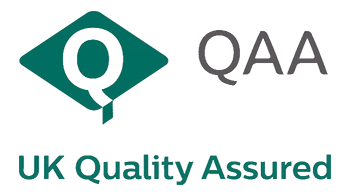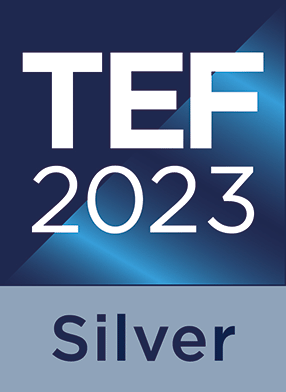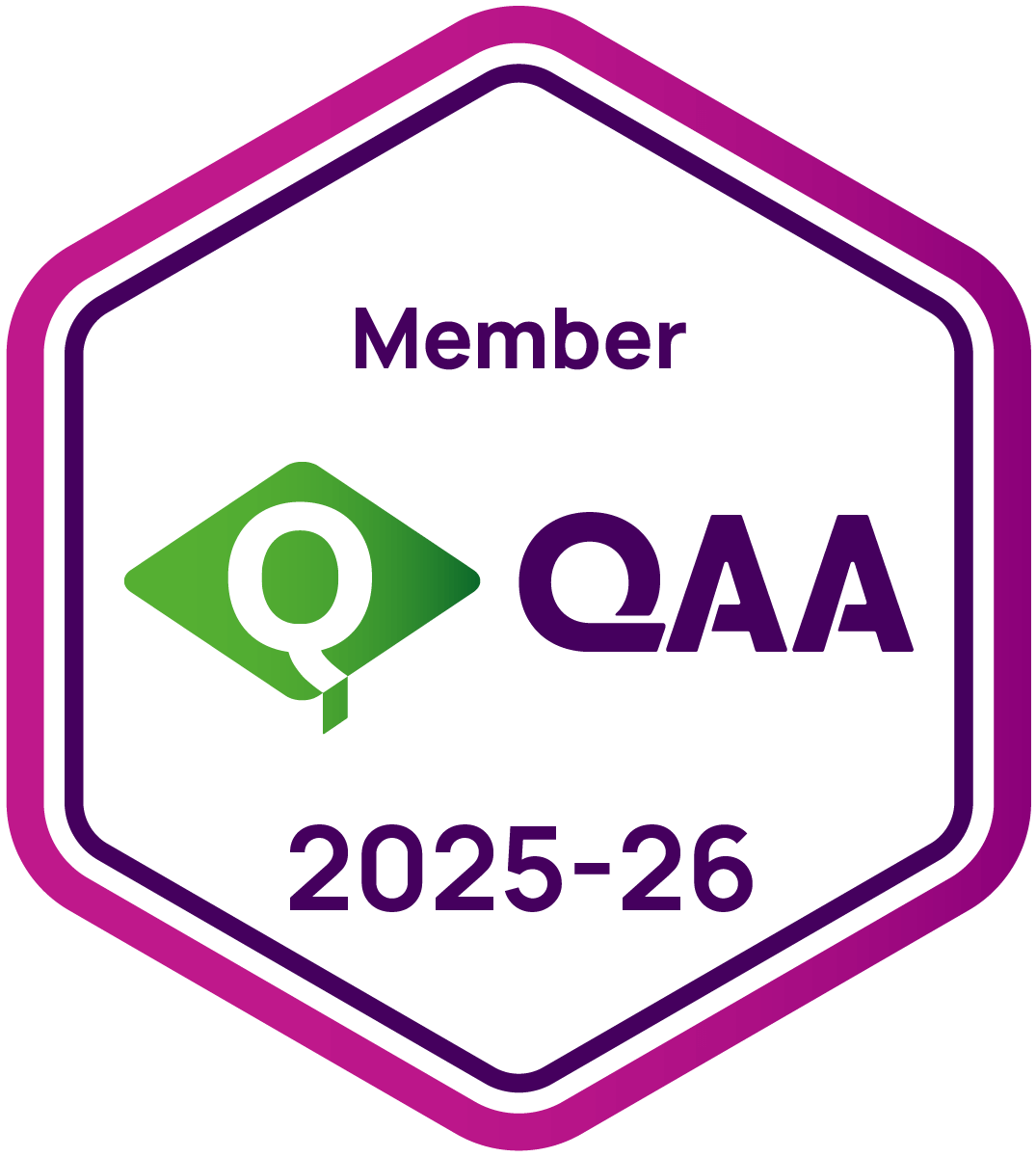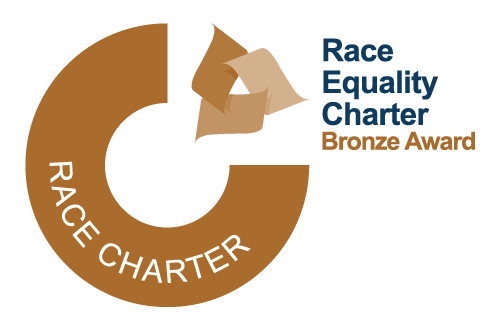Access your Prospectus
Want to find out more about the wide range of courses, student support and more available for students at University Centre Leeds?
Access your University Centre Leeds Prospectus now.

This inspiring and flexible programme opens doors across the education sector. You’ll blend hands-on experience with essential pedagogical knowledge, helping you build confidence, develop professional skills, and explore a wide range of career pathways. Whether you’re returning to study, progressing from Level 3, or looking for a supportive alternative to a larger institution, you’ll find a welcoming environment where you can thrive.
You’ll shape your learning through specialist interests in early years, schools, adult education, or ESOL. Work experience, optional lectures, and discussions with peers from diverse settings will broaden your understanding of education and help you discover your own direction.
You’ll develop confidence in classroom leadership, planning, assessment, behaviour management, and key STEAM and English competencies. With regular classroom experience from day one, you’ll connect theory with real practice.
As the education sector evolves, this programme equips you to meet the needs of today’s learners. With strong progression routes, including pathways into teaching, you’ll be prepared for a rewarding future and ready to make a meaningful impact.
This course is delivered at Keighley College.
TYPICAL OFFER
UCAS Tariff Points: 48 UCAS tariff points from two A-levels (or equivalent L3 qualifications)
International qualifications: International qualifications will be assessed against these criteria and relevant experience.
IELTS: IELTS 6.0 with no less than 5.5 in any component.
Mature applicants: University Centre Leeds welcomes applications from mature* applicants who may not have met the academic criteria, but who can demonstrate a wealth of experience in their chosen field. Candidates in this category and otherwise are likely to be interviewed to assess their suitability for the course and may be asked to provide a portfolio of evidence to support their application.
*21 years and over at the start of the course
RPL claims: The course structure actively supports claims for Recognition of Prior Certified Learning (RPCL) or Recognition of Prior Experiential Learning (RPEL).
GCSE English (Desirable but not essential): English Language grade 4 or above. Key Skills Level 2, Functional Skills Level 2 and the Certificate in Adult Literacy are accepted in place of GCSEs.
GCSE Maths (Desirable but not essential): Maths grade 4 or above. Key Skills Level 2, Functional Skills Level 2 and the Certificate in Adult Numeracy are accepted in place of GCSEs.
GCSEs: If you wish to work in primary education, it is advised that you have GCSE Maths, English Language and Science at grade 4 or above.
NVQ Level 3: Pass grade
Work experience: Whilst placements are not required, it is advised that students seek relevant work experience.
DBS checks: Student s will also be required to complete the Disclosure and Barring Service process (DBS) during the course in order to facilitate work experience opportunities.
Interviews: An interview may be required when candidates do not fully meet the entry requirements.
References: An appropriate reference is required.
Studying Education Studies at Keighley College gives you a supportive, hands-on learning experience that builds your confidence and prepares you for a variety of careers in education. You’ll learn through interactive sessions, practical workshops, group projects, and personalised tutorials - all designed to help you grow at your own pace.
At Level 4, you’ll develop a strong foundation in educational theory and practice. You’ll explore safeguarding, behaviour management, inclusive teaching, and how technology is shaping modern classrooms.
At Level 5, you’ll take your learning to the next level. You’ll build your skills in STEAM and English facilitation, tackle current issues in education, and strengthen your teamwork and research skills. The Future-Focused Learning module prepares you to adapt and thrive in a changing sector.
You’ll also have opportunities to connect with local schools and community partners through projects, workshops, and guest speakers - giving you real insight into professional practice and helping you find your path in education.
This course is subject to validation by Luminate Education Group

If you are applying for 2026 entry, you will need to apply through UCAS.
Select your college for more information on how to apply and the exclusive benefits available to you.
The modules listed below are for the academic year 2025/26 and represent the course modules at this time. Modules and module details (including, but not limited to, location and time) are subject to change over time.
Modules may include:
Theory in Practice (20 credits)
provides students with hands-on experience in lesson planning, delivery, and evaluation. This module focuses on the development of core teaching skills, such as structuring lessons, differentiating instruction, and engaging learners.
Building Positive Learning Environments (20 credits)
equips students with practical skills in behaviour management, emotional regulation, and safeguarding practices. The module enables students to understand and apply national policies related to student well-being, helping them create safe, inclusive learning environments.
Inclusive Practice (20 credits)
focuses on identifying and addressing barriers to learning, teaching students how to adapt their practice to meet the needs of all learners, including those with special educational needs and disabilities (SEND). This module is essential for preparing students to work in diverse educational settings, ensuring they support every learner’s success.
Communication, Language, and Literacy (20 credits)
enhances students’ ability to support language and literacy development, with a particular emphasis on early years and primary education. This module aligns with national priorities and equips students with valuable skills for supporting students’ language development in school settings.
Supporting Technology Enhanced Learning (20 credits)
This module gives learners the chance to explore the latest educational tech, from AI to creative digital apps - and discover how these tools can boost inclusion, support wellbeing, and keep learners safe across all education settings. students will pick a tech tool relevant to their own practice, dig into its benefits and challenges, and present their findings in a clear, research-informed portfolio.
Concepts of Supporting Learning (20 credits)
This module gives students a chance to dive into big ideas about teaching—exploring key pedagogical theories, education policy, and what all of this looks like in real-life practice. They’ll look at both classic and modern teaching models and figure out how these approaches work across different classrooms and with diverse groups of learners.
Contemporary Education Agenda (20 credits)
introduces students to recent educational developments, including policy reforms and the implications of the Ofsted framework. Students critically evaluate current issues, ensuring they are up to date with national and sector-wide priorities.
Facilitating STEM (20 credits)
focuses on the design and delivery of STEM learning experiences, preparing students to address educational gaps in science, technology, engineering, and mathematics—skills in high demand in schools and other educational institutions.
Future-Focused Learning (20 credits)
encourages students to explore innovative teaching methods, including digital technologies and learner-centred approaches. This module ensures students are prepared to meet future challenges in education, fostering adaptability and forward-thinking practices.
Collaborative Partnership (20 credits)
This module explores the many collaborative partnerships that shape the education sector, showing how teamwork strengthens teaching and learning. Students will examine how collaboration influences professional practice and how policy guides effective joint working.
Facilitating English (20 credits)
This module explores the pivotal role of English in the National Curriculum, examining how policy, reform, and social expectations shape curriculum design, assessment, and everyday classroom practice. Through hands-on activities and practical strategies, learners develop the skills and confidence to support high-quality English teaching, enhance literacy, and engage in current debates surrounding the subject.
Work-based Project (20 credits)
This module guides learners in designing and conducting a research project to enhance educational practice and promote learning. Students develop skills in applying evidence-based strategies, critically investigating educational challenges, and presenting their findings with a strong understanding of ethics and academic integrity.
Throughout the programme, students develop key professional skills, including effective communication, collaboration, problem-solving, planning, and reflection. These competencies are nurtured through collaborative tasks, group projects, seminars, and practical assessments, ensuring students graduate with a well-rounded skill set.
The Education Studies Foundation Degree uses a progressive assessment strategy across Levels 4 and 5 to develop both academic and professional skills for roles in education or progression to teaching qualifications. Level 4 focuses on building foundational knowledge, academic confidence, and core professional skills through reflective writing, structured analysis, and practical tasks, while Level 5 emphasises application, critical evaluation, and independent inquiry, supported by tutorials in academic writing, referencing, and study skills.
A diverse range of assessments - including portfolios, case studies, work-based projects, presentations, research tasks, and peer-collaborative activities—ensures students can apply theory to real-world contexts, engage critically with evidence, and communicate effectively.
Throughout, reflective and inclusive practices foster professional growth, preparing students to become confident, capable practitioners ready for Level 6 study or employment in the education sector.
Opened in 2010, Keighley College combines modern, industry-standard facilities with a friendly, professional environment. From engineering workshops and hair & beauty salons to IT suites, childcare rooms, and social spaces, everything is designed to support your learning and help you thrive.
We know you may not have decided on your future yet, and the Foundation Degree in Education Studies is designed to prepare you for a wide range of roles in education — from teaching to support, policy, and community work. Our team has experience across the sector and can help you find your path.
Possible careers include:
You can also progress to a Level 6 Top-Up Degree at University Centre Leeds, including Children and Young People's Care and Education - BA (Hons) (Top-up) giving you a full honours degree and opening doors to specialist or senior roles within education.
TYPICAL OFFER
UCAS Tariff Points: 48 UCAS tariff points from two A-levels (or equivalent L3 qualifications)
International qualifications: International qualifications will be assessed against these criteria and relevant experience.
IELTS: IELTS 6.0 with no less than 5.5 in any component.
Mature applicants: University Centre Leeds welcomes applications from mature* applicants who may not have met the academic criteria, but who can demonstrate a wealth of experience in their chosen field. Candidates in this category and otherwise are likely to be interviewed to assess their suitability for the course and may be asked to provide a portfolio of evidence to support their application.
*21 years and over at the start of the course
RPL claims: The course structure actively supports claims for Recognition of Prior Certified Learning (RPCL) or Recognition of Prior Experiential Learning (RPEL).
GCSE English (Desirable but not essential): English Language grade 4 or above. Key Skills Level 2, Functional Skills Level 2 and the Certificate in Adult Literacy are accepted in place of GCSEs.
GCSE Maths (Desirable but not essential): Maths grade 4 or above. Key Skills Level 2, Functional Skills Level 2 and the Certificate in Adult Numeracy are accepted in place of GCSEs.
GCSEs: If you wish to work in primary education, it is advised that you have GCSE Maths, English Language and Science at grade 4 or above.
NVQ Level 3: Pass grade
Work experience: Whilst placements are not required, it is advised that students seek relevant work experience.
DBS checks: Student s will also be required to complete the Disclosure and Barring Service process (DBS) during the course in order to facilitate work experience opportunities.
Interviews: An interview may be required when candidates do not fully meet the entry requirements.
References: An appropriate reference is required.
For the latest version of the University Centre Leeds regulations please click here.
Our online and in-person Open Events give you a chance to hear from tutors, discover the range of student support available, and find out for yourself why University Centre Leeds has the highest rating for student satisfaction in the city (NSS 2025).
Open DaysWant to find out more about the wide range of courses, student support and more available for students at University Centre Leeds?
Access your University Centre Leeds Prospectus now.








